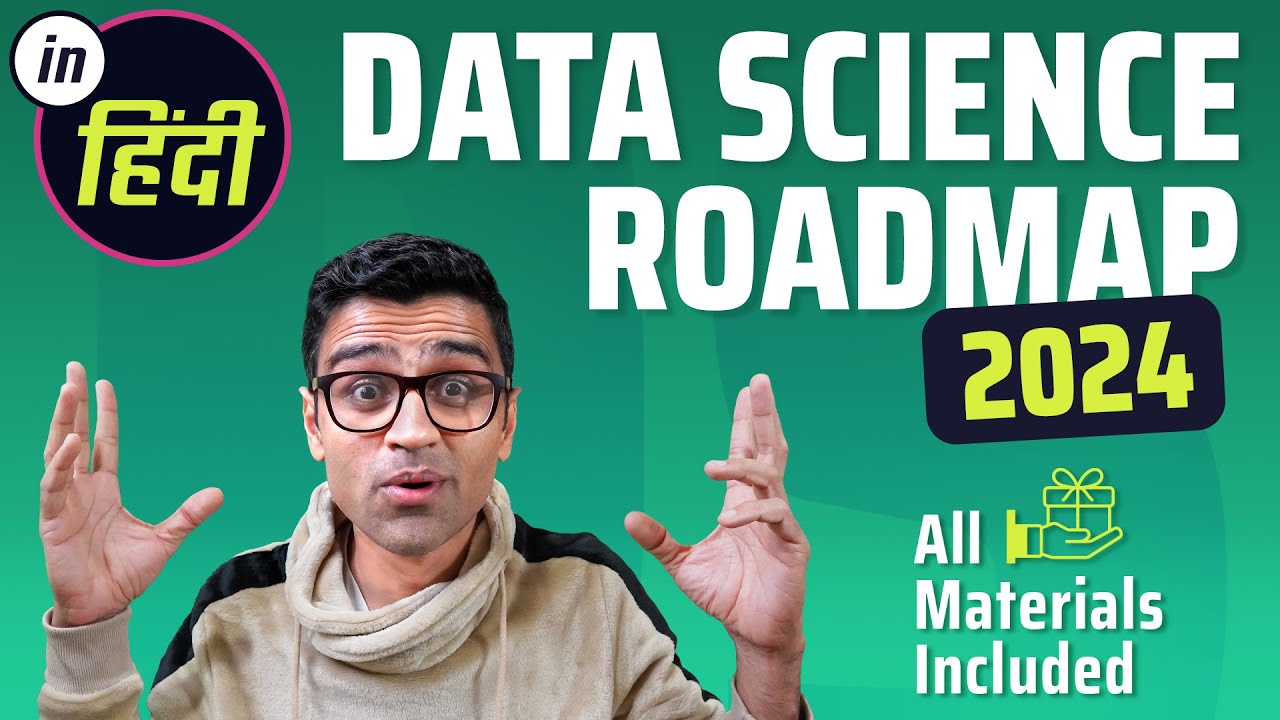How I’d learn ML in 2024 (if I could start over)
Summary
TLDRThis video script offers a comprehensive guide for anyone aspiring to learn machine learning in 2024. It emphasizes starting with Python basics and understanding fundamental math concepts like calculus, linear algebra, and probability theory. The speaker, a former student and researcher with experience at top tech companies, recommends learning the ML developer stack, including tools like Jupyter notebooks and libraries such as pandas, numpy, and matplotlib. The script also suggests engaging with courses by Andrew Ng for machine learning and deep learning, using frameworks like PyTorch, and highlights the importance of practical experience through Kaggle challenges and reimplementing research papers to stand out in the field.
Takeaways
- 💻 Start with learning Python basics, as it is the foundation for machine learning and other steps.
- 🧠 Understand the fundamentals of calculus, linear algebra, and probability theory to grasp machine learning approaches.
- 📚 Utilize free resources for learning Python and math, such as online tutorials and courses.
- 🔍 Actively code along with tutorials to enhance learning and enjoyment of machine learning with Python.
- 📈 Learn about the ML developer stack, including tools like Jupyter notebooks and libraries like pandas, numpy, and matplotlib.
- 📊 Numpy is essential for matrix operations, matplotlib for data visualization, and pandas for data manipulation in tabular format.
- 🎓 Enroll in comprehensive machine learning courses like the Machine Learning Specialization by Andrew Ng for a solid understanding of ML concepts.
- 🤖 Dive into deep learning with the Deep Learning Specialization, which includes practical implementation and training of neural networks.
- 🏆 Engage in real-world projects by participating in Kaggle challenges to apply and deepen your understanding of ML.
- 📝 Reimplementing papers and recreating results is a challenging project that can significantly enhance your ML skills and application.
- 🌟 Stand out by working on projects that demonstrate your practical skills and understanding of machine learning concepts.
Q & A
What are the six key steps mentioned for learning machine learning in 2024?
-The script does not explicitly list the six steps but implies learning Python basics, understanding fundamental mathematics, getting familiar with the ML developer stack, learning about machine learning and deep learning, working on real projects, and standing out in the ML application process.
Why is Python the recommended programming language for machine learning?
-Python is recommended because it is the language used by most people working on machine learning, and all other steps in the learning process build on top of it.
What are some basic Python concepts beginners should learn according to the script?
-Beginners should learn about lists, dictionaries, if-else statements, for loops, list comprehensions, and class inheritance.
What is the importance of learning mathematics for machine learning?
-Mathematics is important because it provides the foundational understanding of calculus, linear algebra, and probability theory, which are essential for grasping any machine learning approach.
Can someone learn machine learning without understanding complex mathematics?
-While much of machine learning is automated, understanding the fundamentals of mathematics is necessary. However, complex mathematics is not required; high school or entry-level college math is sufficient.
What are some tools and libraries mentioned for the ML developer stack?
-Jupyter notebooks, pandas, numpy, and matplotlib are mentioned as essential tools and libraries for the ML developer stack.
What is the recommended course for learning machine learning according to the script?
-The Machine Learning specialization by Andrew Ng is recommended, as it covers classical ML concepts and introduces machine learning frameworks like scikit-learn and TensorFlow.
Who is Andrej Karpathy, and what is his contribution to learning neural networks?
-Andrej Karpathy is an AI researcher who has a series of videos implementing a simple neural network from scratch to a transformer model, covering the math of backpropagation, which is highly recommended for learning neural networks.
What is the Deep Learning specialization, and what does it focus on?
-The Deep Learning specialization is a course that focuses on implementing and training neural networks, including the use of the Hugging Face library for NLP.
What are the two types of projects recommended for hands-on learning in machine learning?
-The two types of projects recommended are working on challenges on Kaggle and reimplementing papers to recreate the results.
How can one stand out in their machine learning application process?
-One can stand out by working on real projects, such as Kaggle challenges and reimplementing papers, which demonstrate practical experience and understanding of ML concepts.
Outlines

Esta sección está disponible solo para usuarios con suscripción. Por favor, mejora tu plan para acceder a esta parte.
Mejorar ahoraMindmap

Esta sección está disponible solo para usuarios con suscripción. Por favor, mejora tu plan para acceder a esta parte.
Mejorar ahoraKeywords

Esta sección está disponible solo para usuarios con suscripción. Por favor, mejora tu plan para acceder a esta parte.
Mejorar ahoraHighlights

Esta sección está disponible solo para usuarios con suscripción. Por favor, mejora tu plan para acceder a esta parte.
Mejorar ahoraTranscripts

Esta sección está disponible solo para usuarios con suscripción. Por favor, mejora tu plan para acceder a esta parte.
Mejorar ahoraVer Más Videos Relacionados

Tips & Complete RoadMap to become a Data Scientist in 2024

Data Science Roadmap 2024 | Data Science Weekly Study Plan | Free Resources to Become Data Scientist

You Don’t Need School: How to Teach Yourself Anything

How to Become an $300K AI Engineer in 2025 (complete roadmap)

Smartest Route To $10,000/Month Trading in 2024 (With ZERO Experience)

How I'd Learn NLP in 2024 (If I Had to Start Over)
5.0 / 5 (0 votes)
